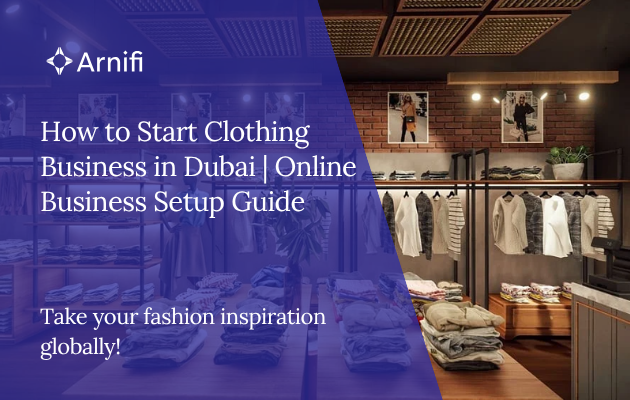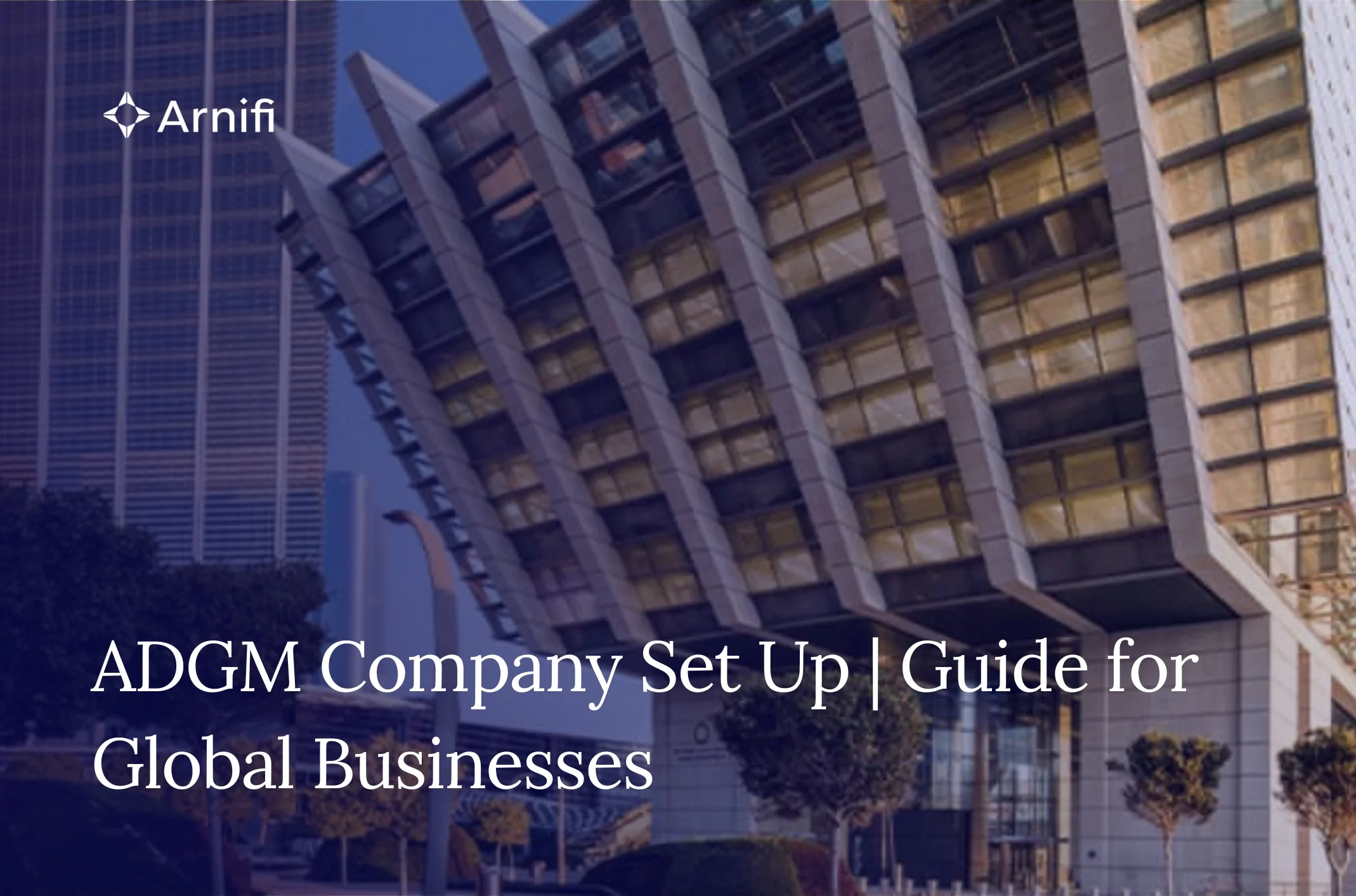How to Start an Online Clothing Business in Dubai | Online Business Setup Guide
by
Shethana
May 10, 2025  5 MIN READ
5 MIN READ

Dubai has long been recognised for its trade in real estate, oil, gold, and onshore and offshore services. Now, with modern infrastructure and tech-savvy consumers, e-commerce, especially the clothing business in Dubai, is booming. From diverse local tastes to global tourism, digital retail offers massive opportunities in this evolving market.
This guide covers everything you need, including legal requirements, jurisdictions, business setup, approvals, go‑to‑market strategies, and cost analyses to start an online clothing business in Dubai.
Table of contents
- Why Dubai Is Ideal for Online Fashion Retail
- Legal Structure & Jurisdiction
- Regulatory Compliance & Documentation
- Market Research & Planning
- Building Your Online Store
- Sourcing & Inventory Management
- Marketing & Sales Strategies
- Financial & Operational Costs
- Challenges & Risk Management
- Related Opportunities
- Final Thoughts
Why Dubai Is Ideal for Online Fashion Retail
- Business-Friendly Policies: Thanks to Vision 2030, the UAE offers 100% foreign ownership in many free zones, tax exemptions, and supports artificial intelligence AI business setup in Dubai for personalized fashion platforms.
- Strategic Location: Dubai connects Europe, Asia, and Africa, making it an ideal hub for global fashion logistics. This location also mirrors the setup of restaurant and cafeteria businesses in Dubai, offering excellent site access.
- High Fashion Demand: Expats, tourists, and locals drive demand across Western, modest, and business attire segments. Platforms like Amazon.ae, Noon, Namshi are dominating—and present opportunities for niche brands.
Legal Structure & Jurisdiction
Mainland vs Free Zone
- Mainland Setup – Best if you want to sell offline too (e.g., pop-ups). Choose locations like Business Bay or Meydan. Be aware of the business setup in Dubai mainland costs and the Modern regulatory structure LLC or a branch.
- Free Zone Setup – Offers simplicity, 100% ownership, and business setup in Dubai Studio City Free Zone or Dubai Design District.
Optimal Business Structure
- LLC (Limited Liability Company) – Favours growth & multiple partners.
- Sole Proprietorship – Good for freelancers operating small e-commerce.
- Branch of Foreign Company – Ideal if expanding an existing brand into Dubai.
Regulatory Compliance & Documentation
- Register via DED (Department of Economic Development) or a free zone authority.
- Abide by Economic Substance Regulations (ESR): maintain physical presence, staff, & generate income locally.
- Prepare essential documents: trade license, MoA, lease, passports, and KYC.
- Be aware of business setup penalties in Dubai to avoid non-compliance issues.
Market Research & Planning
- Segment your market: Western wear, modest fashion, casual, or office attire.
- Research competitors using platforms like Noon, Namshi, and local reports (Dubai Chamber, Statista).
- Identify profitable niches and create a clear business plan with budgets for set-up, marketing, logistics, inventory, and legal compliance.
Building Your Online Store
- Domain & Branding – Choose services like GoDaddy, Wix, or Hostinger
- UI/UX Design – Use soft palettes that align with your brand identity
- E-commerce Platform – Opt for Shopify, WooCommerce, or Magento
- Payment Integration – Enable regional wallets like Telr, PayTabs, and internationally recognized options like PayPal
- SEO & Content – Use SEO optimised for “how to start an online clothing business in Dubai.”
- Legal Compliance – Ensure terms, policies, and ESR reports are in place.
Sourcing & Inventory Management
- Partner with reliable suppliers, negotiate bulk pricing and consistent deliveries.
- Choose between:
- Inventory Model – Greater quality control, needs warehouse space.
- Dropshipping Model – Lower upfront cost, partner-managed logistics.
Use tools like Zoho Inventory, TradeGecko, or Shopify’s in-built system to manage inventory, returns, and avoid overstock situations.
Marketing & Sales Strategies
- Social Media & Digital Marketing – Post fashion content, run Instagram/Facebook ads, and use Google Ads.
- SEO – Ensure your store ranks for queries like “online clothing UAE.”
- Email Marketing – Build a mailing list and drive repeat purchases.
- Influencer Collaborations – Work with fashion bloggers for brand exposure.
- Offline Promotions – Try pop-ups in malls like Business Bay or Meydan pop-up locations.
Financial & Operational Costs
| Expense Category | Estimated Cost (AED) |
|---|---|
| Trade License | Mainland: 12,000–15,000; Free Zone: 10,000–25,000 |
| Corporate Bank Account | Depends on bank, keep documents ready |
| Warehouse / Office Rental | ~43 AED/sq ft per annum; pop-ups extra |
| Admin & Processing Fees | ~3,000–5,000 AED |
| Logistics (Monthly) & Initial Approvals | ~300–3,000 AED |
| Marketing & Inventory Costs | Budget-specific |
Challenges & Risk Management
- Regulatory Compliance Issues – Rely on experts like Arnifi, your business setup consultant in DMCC Dubai.
- Market Competition – Focus on branding and niche segments.
- Logistics & Delivery – Partner with efficient couriers and track performance.
- ESR Reporting & Penalties – Use professional advice to stay ahead.
Related Opportunities
If you’re exploring more:
- How to Start a Gold Business in Dubai
- How to Start a Perfume Business in Dubai
- How to Start a Car Rental Business in Dubai
- How to Start an Airbnb Business in Dubai
These ventures complement your e-commerce setup and share infrastructure like business setup in Dubai Design District or Business Bay, Dubai.
Final Thoughts
Dubai’s shift toward e-commerce and digital fashion is clear. With strong legal frameworks, consumer demand, and tech infrastructure, now’s the moment to start an online clothing business in Dubai.
Whether you’re building a sole proprietorship, LLC, or free zone operation, Arnifi can help with licensing, HR compliance, digital strategy, and logistic partnerships. Focus on growth, we’ll handle the setup.
Contact us now for your free consultation and launch your brand into the digital fashion landscape of Dubai!
Top UAE Packages

Related Articles
Top UAE Packages



